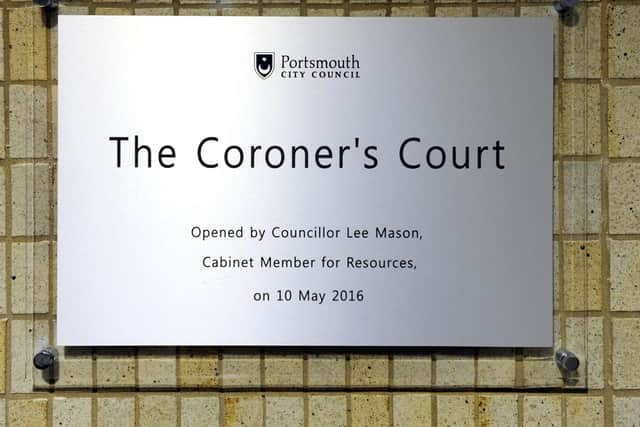Portsmouth baby died at Queen Alexandra Hospital after 'extremely rare and complicated' birth, inquest hears
and live on Freeview channel 276
Despite attempts to save baby Henley Lewis, he died on December 4, 2018, three days after being born at Queen Alexandra Hospital.
Portsmouth Coroners’ Court heard how paramedics, midwives and a registrar all failed to deliver Tiffany Lewis’ baby, who was in a foot first ‘breech’ position, as they were rushed to hospital on December 1, 2018.
Advertisement
Hide AdAdvertisement
Hide Ad

The hearing was told how Ms Lewis went into labour at her upstairs apartment on Fifth Street, Fratton, when paramedics arrived at 9.14am with a ‘rapid delivery anticipated’ due to it being the mum’s seventh labour.
The inquest heard how attempts to encourage the mum to go to hospital were declined before she suffered an estimated blood loss of 500ml as Henley’s bottom and leg were delivered.
Amid growing concerns with the ‘baby unable to move’, paramedics called Labour Line for advice before a student midwife made the first attempt to deliver Henley, which was unsuccessful.
Midwives then arrived on scene and escorted the mum into an ambulance.
Advertisement
Hide AdAdvertisement
Hide AdOnce at hospital, a registrar was also unable to deliver Henley who was rushed to theatre before he was finally born at 10.10am - but had suffered a ‘profound lack of oxygen’ to the brain and needed resuscitation.
Coroner, Rosamund Rhodes-Kemp, who recorded a narrative conclusion, said: ‘The reason (the labour) was so difficult was because Henley had both arms behind his neck which was extremely rare and difficult to manage.’
This meant there was ‘nothing to grab hold of to assist’ in the manoeuvre of removing Henley who was stuck in the birth canal.
Henley died of brain hypoxia despite being ventilated and receiving treatment after his birth.
Advertisement
Hide AdAdvertisement
Hide Ad‘It is possible some of the brain damage could have been avoided if he had been delivered earlier but it was an extremely complicated and difficult situation to manage for all concerned,’ Ms Rhodes-Kemp said.
The coroner, putting in context the complexity of the situation, said: ‘A consultant obstetrician (a doctor who specialises in pregnant women) working for 30 years said they had never seen anything of this nature before which is an indication of the difficulty of this delivery.’
SEE ALSO: Couple celebrate 70 years
Ms Rhodes-Kemp insisted she was ‘mindful not to look with hindsight’ at the tragic event after ‘all those who arrived at the scene said it was chaotic’.
She added: ‘The mum has been traumatised by what happened but so have some of those who attended.’
The coroner said she was ‘very sorry’ for the loss of Henley.
